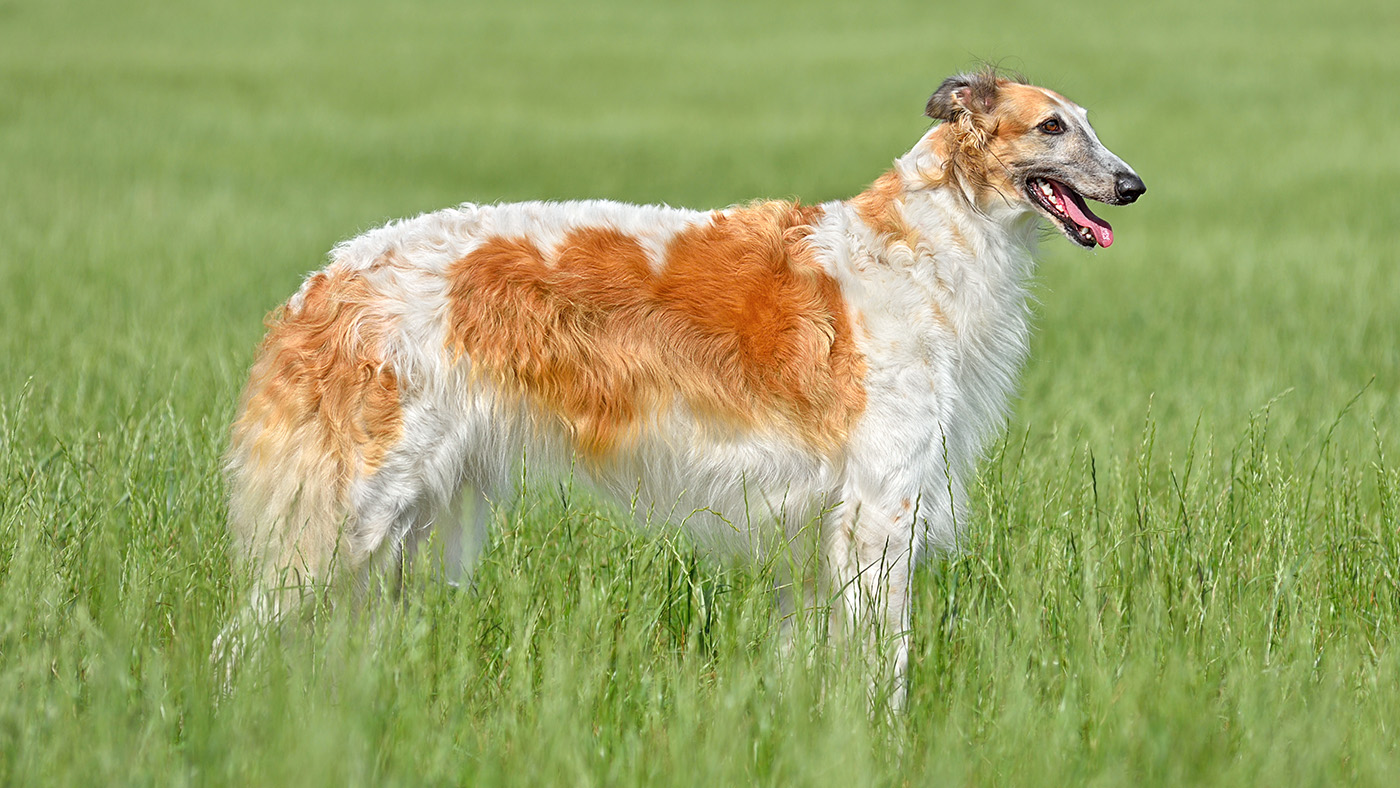Why is my cat begging for food?
If you have a cat begging for food, find out why it's happening and what you can do about it.
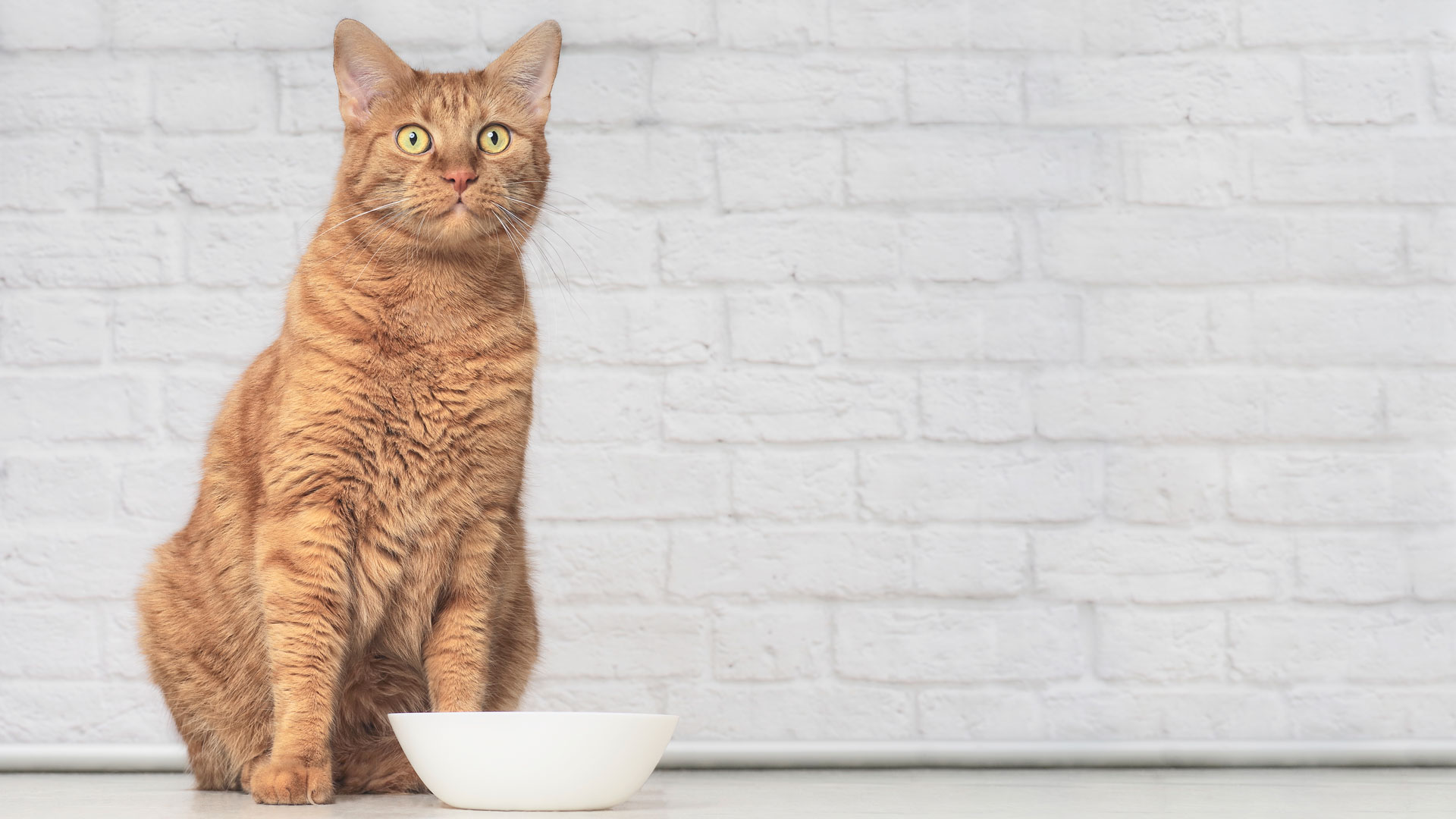
The sight of a cat begging for food is a bit of an unusual pet scenario. While most dog owners can relate to the idea of a pair of wide eyes gazing up hopefully from beneath the dinner table, most cats are thankfully a bit more dignified. The closest most owners are likely to come to a cat begging for food is the solicitation ritual of rubbing around your ankles and purring loudly at mealtimes. That sort of behaviour is pretty much in the cat job description.
Food is one of the many things that cats generally fail to be motivated by, but of course there are exceptions. So if you're finding yourself repeatedly bothered by a hungry and overly demonstrative feline, whether it's demanding food at all hours, getting in your face when you're trying to cook, or even worse, leaping onto the table when you're having dinner, we're here to help.
Why is my cat begging for food?
Cats, we're sure you've realised, are complex and often inscrutable creatures. And so it shouldn't be any surprise to learn that there are lots of reasons why you might have to deal with a cat begging for food. So let's break things down into the most likely areas of explanation.
Health issues
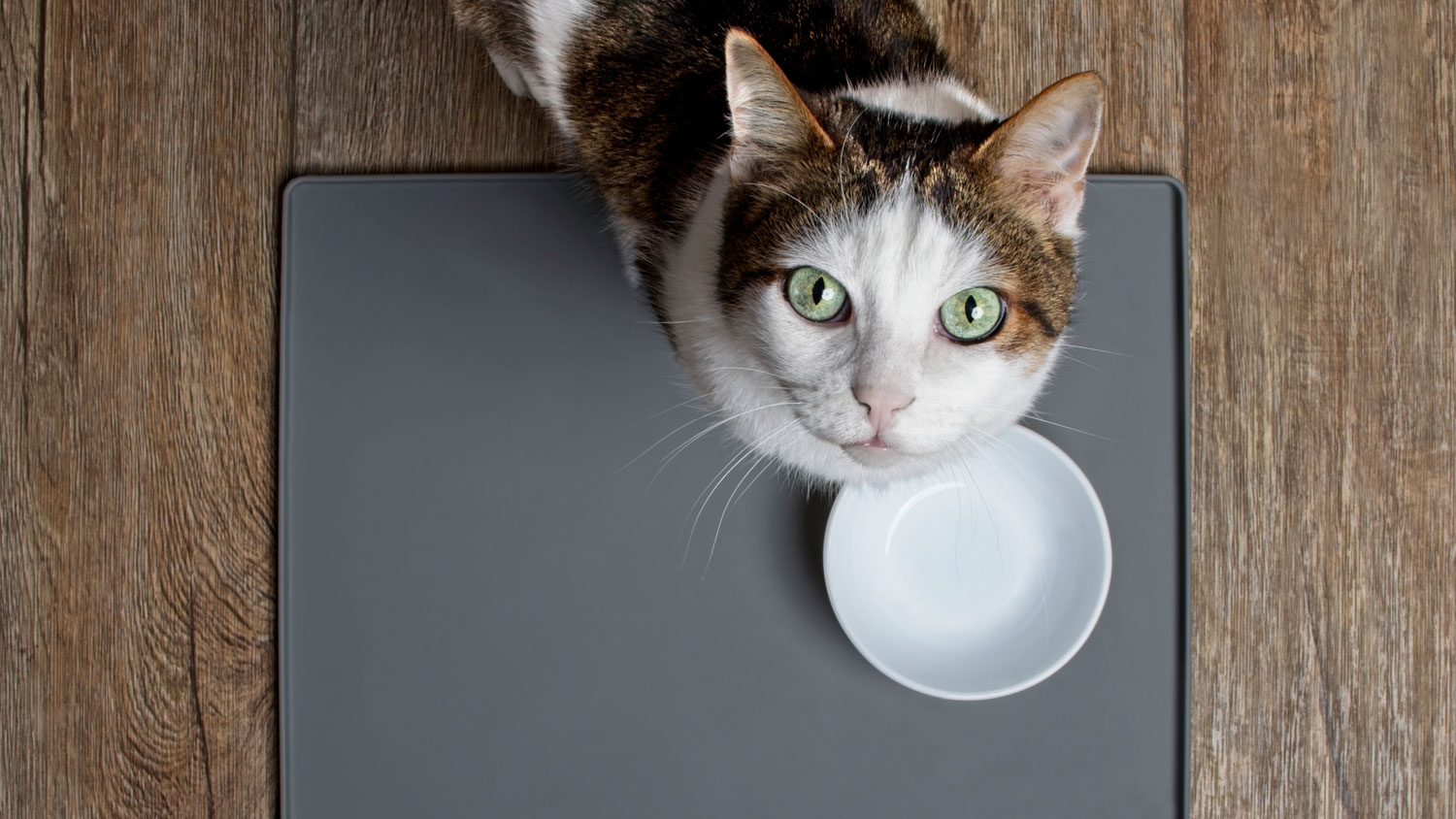
The first, and the most urgent group of explanations to explore is health-related. If your cat's constantly hungry and demanding food there are a few main reasons why this may be the case. If it's an outdoor cat that loves to hunt, there's a strong possibility that it has worms, and that means that it's not getting all the nutrients it needs from its food; the worms are getting their fair share from it too. Thankfully worms are easily treated; consult your vet for the best options.
If your cat's getting on in years then its increased appetite may simply be age-related; it's quite normal for cats to want more food as they get older. However there are also more serious health-related reasons why your cat may be demanding food all the time, including hyperthyroidism and diabetes. Both of these can result in increased appetite, as well as other symptoms including increased thirst and urination, weight loss, lethargy and weakness. According to the PDSA, hyperthyroidism in particular can also lead to noisy and demanding behaviour as well as hyperactivity, which could easily be expressed as begging for food. In short, though, if you suspect your cat's demands for food are health-related, you should of course pack it off to the vet as soon as possible.
Behavioural issues
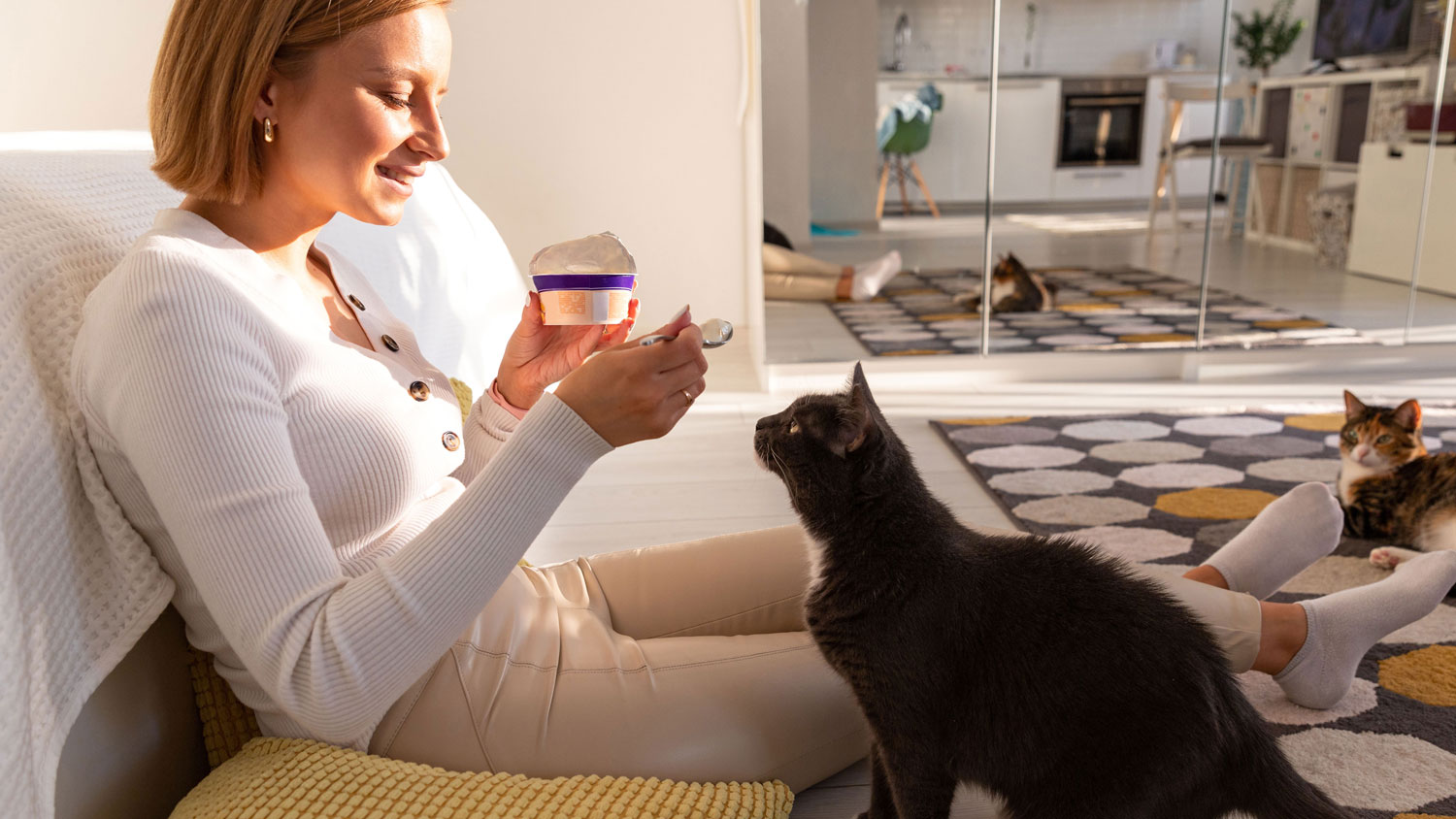
A constantly hungry cat isn't necessarily sick, though; another reason why it might be begging for food may be that it's not getting the nutrition it needs from its current diet. Check out our guide to the best cat food to see if your furball's dinner is coming up short in comparison.
Beyond diet, there could be any number of behavioural reasons why your cat might be begging for food. However getting to the bottom of why it's doing this can be a lot less straightforward than getting a medical diagnosis. One possible explanation is that your cat's bored – this is particularly likely if it's an indoor cat that doesn't get enough stimulation, and it's come to see eating as a fun activity – or simply seeking attention.
The best way to figure out if this is the case is to make more time to play with your cat, and see if this makes a difference; treating it to one or more of the best cat toys may make things more fun. Alternatively, try livening up feeding time with a cat puzzle feeder or interactive food dispenser that adds an element of play and prevents boredom by appealing to your cats' hunting instincts.
Other reasons why a cat may be begging for food could come down to its feeding routine. Cats tend to be creatures of habit, and if you don't have a regular feeding routine nailed down then your cat may well feel the need to beg for food when it gets hungry.
If you suspect that you've been a bit random in giving your cat its meals, try setting twice-daily kitty feeding times and stick to them; the reassurance of regular, predictable food may be all your cat needs to settle down a bit, and if it begs for food at other times, try distracting it with play or fuss instead.
A cat that's fed in the kitchen may start to associate you being in there, preparing food, with it getting its own meals, and you could of course make things worse by feeding it scraps as you make the evening meal. The simple solution is to start feeding it in another room, and be firm with it – and distract it if necessary – if it starts begging for food while you're cooking.
One final trick you might want to try is putting the cat food bowl away once it's empty; the sight of an empty bowl may well be triggering your cat into thinking that it needs more food. However if having read through all this you're still at a loss, you might need professional help if your cat begging for food is a big problem for you; the Association of Pet Behaviour Counsellors can help you find a qualified behaviourist.
Conclusion
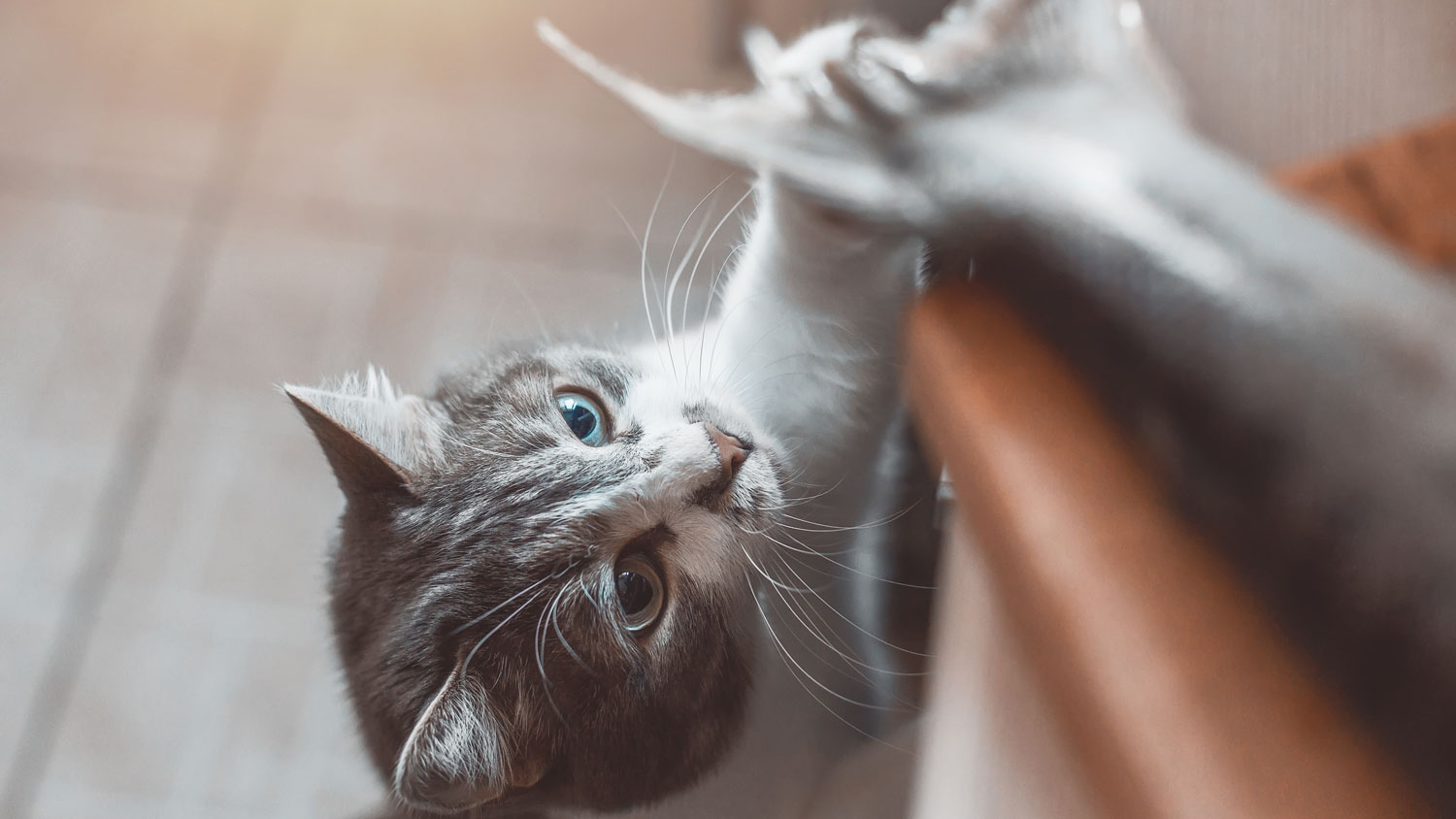
Mercifully, the fact that most cats aren't particularly motivated by food means that you're fairly unlikely to be bothered by an insistently hungry feline. However if your cat is one of the exceptions you'll have also discovered that they can also be exceptionally single-minded and persistent when it comes to begging for food.
While there's no one-size-fits-all solution, by keeping a close eye on your cat's behaviour you should be able work out whether it's a medical issue that requires veterinary attention, or a behavioural problem that you can address either by yourself or with professional help and advice. Either way, good luck!
PetsRadar Newsletter
Get the best advice, tips and top tech for your beloved Pets
Jim is a writer, performer and cat-wrangler based in Bath, who last year adopted a pair of sibling rescue cats who turned out to be effectively feral, and has spent a lot of time since then trying to get them accustomed to people (some success) and each other (ongoing project).

